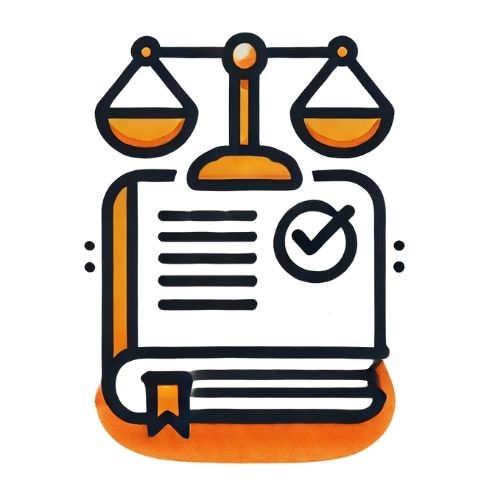
Depositing cash into a bank in South Africa is a common practice, but there are specific rules and limits in place to comply with financial regulations such as the Financial Intelligence Centre Act (FICA). These regulations are designed to monitor large cash transactions and prevent financial crimes like money laundering. Understanding the limits on cash deposits, the required documentation, and the risks of non-compliance can help ensure a smoother banking experience.
Key Takeaways
- Cash Deposit Limits Are Enforced by FICA: In South Africa, banks must comply with the Financial Intelligence Centre Act (FICA), which mandates that cash transactions above R24 999 be reported. This ensures transparency and helps prevent financial crimes such as money laundering.
- Documentation Is Required for Large Deposits: For significant cash deposits, banks may request proof of the source of funds and additional identification to meet compliance requirements. Visiting a branch in person and preparing the necessary paperwork can streamline the process.
- Digital Alternatives Are Safer and More Efficient: Methods like electronic fund transfers (EFTs) and mobile banking provide secure, convenient, and cost-effective alternatives to depositing large amounts of cash. These options are ideal for handling substantial transactions while avoiding the risks and fees associated with cash deposits.
About Arcadia Finance
Get the loan you need effortlessly with Arcadia Finance. No application fees, access to 19 trusted lenders, and full compliance with South Africa’s National Credit Regulator. Simplify your borrowing experience with reliable options designed for you.
Understanding Cash Deposit Limits in South Africa
Cash deposit limits are the maximum amounts individuals or businesses can deposit into a bank account without requiring additional scrutiny or documentation. These limits are not arbitrary; they are designed to ensure compliance with financial regulations, particularly the Financial Intelligence Centre Act (FICA).
FICA plays a vital role in monitoring cash transactions in South Africa. Its primary purpose is to prevent financial crimes such as money laundering, terrorism financing, and tax evasion. Under FICA, banks must report cash transactions above a certain threshold to the Financial Intelligence Centre (FIC). This reporting ensures that large cash movements are tracked and accounted for, helping to deter illegal activities.
Common Deposit Limits
The specific deposit limits vary depending on the bank and the type of account. While there is no fixed universal limit, most banks require additional documentation for deposits exceeding R24 999. For example:
- Personal accounts may have lower thresholds for reporting requirements compared to business accounts.
- Business accounts typically have higher transaction allowances but are subject to stricter scrutiny.
- Some banks set internal thresholds below the legal reporting limit to flag unusual activities for internal monitoring.
Factors influencing these limits include the type of account, the customer’s banking history, and the bank’s risk management policies. Customers making deposits above these thresholds are usually asked to provide documentation, such as proof of the source of funds.
Depositing large sums might attract fees, but there are ways to optimize your transactions. Learning how to avoid bank fees can help you save money and manage deposits more efficiently, ensuring you keep more of your hard-earned cash

Why Do Banks Set Limits on Cash Deposits?
Banks set cash deposit limits to comply with legal requirements, prevent financial crimes, and manage risks effectively. These measures help maintain trust in the financial system while ensuring compliance with both local and international regulations.

Preventing Money Laundering and Financial Crimes
Cash deposit limits play a key role in preventing money laundering by flagging and monitoring large or unusual transactions. This enables banks to identify and report suspicious activities that may involve illegally obtained funds. Such practices align with South African laws and global standards for financial security.

Compliance with Financial Regulations
Under regulations such as FICA, banks are required to report deposits above certain thresholds to the Financial Intelligence Centre and maintain records of these transactions. These requirements promote transparency and help deter illegal activities. Non-compliance can result in severe penalties and damage to a bank’s reputation.

Risk Management and Operational Stability
Managing large cash transactions presents risks, including fraud, counterfeit currency, and logistical challenges. Deposit limits help banks streamline operations, allocate resources efficiently, and protect against potential liabilities. For customers, these policies enhance confidence in the reliability and security of the financial system.
When choosing a bank, it’s essential to understand their deposit policies. Our guide on How to Choose a Bank in South Africa delves deeper into factors like deposit limits and banking flexibility to help you make an informed decision.
How to Deposit Large Amounts of Cash
Depositing a large amount of cash into your bank account requires careful planning and adherence to banking procedures to ensure compliance with regulations. Here’s a simple step-by-step guide to help you through the process:
- Visit Your Local Bank Branch
Large cash deposits usually need to be made in person at a bank branch. This allows the bank to verify the transaction and complete any necessary documentation.
- Prepare Documentation
For significant cash deposits, you’ll need to provide documentation showing the source of the funds. This could include a payslip, sales receipt, or any other relevant proof. Having this ready can speed up the process.
- Meet FICA Compliance Requirements
Banks are required by the Financial Intelligence Centre Act (FICA) to monitor and report large cash transactions. Be prepared to provide your ID and any additional information the bank may request to comply with FICA regulations.
- Complete the Deposit Form
At the branch, you’ll need to fill out a deposit slip and, in some cases, additional forms for transactions above the reporting threshold.
- Receive Confirmation
Once the deposit is processed, ensure you receive a receipt as proof of the transaction. Keep this for your records, especially if the funds are linked to a business or legal matter.

Comparison of South African Banks and their Deposit Limit
| Bank | Account Type | Daily Cash Deposit Limit | Monthly Cash Deposit Limit | Cash Deposit Fees |
|---|---|---|---|---|
| First National Bank (FNB) | Easy Zero Account | R3 000 | R20 000 | Free up to R3 000; thereafter, fees apply. |
| Nedbank | MobiMoney Account | R3 000 | R24 000 | Free up to R3 000; thereafter, fees apply. |
| Standard Bank | MyMo Account | R5 000 | R25 000 | Fees apply for all cash deposits; rates vary. |
| Capitec Bank | Global One Account | No specific limit | No specific limit | Fees apply per R100 deposited; consult bank for current rates. |
| Absa Bank | Transact Account | No specific limit | No specific limit | Fees apply per R100 deposited; consult bank for current rates. |
Selecting a bank that aligns with your financial needs is essential, especially when handling significant cash deposits. Exploring which bank is the best in South Africa can guide you in making an informed decision.
Tips for Making Cash Deposits Smoothly
Organise Your Documentation
Before visiting the bank to deposit a significant amount of cash, take the time to gather all necessary documents. These may include proof of income, such as a payslip, a receipt from a sale, or any relevant paperwork that verifies the source of the funds. Having this documentation ready in advance not only streamlines the process but also helps avoid delays or complications during the transaction. Ensuring that your documents are complete and accurate can make the entire process smoother and more efficient.
Consider Alternative Methods
If depositing a large sum of cash seems inconvenient, consider exploring digital alternatives such as electronic fund transfers (EFTs) or mobile wallets. These methods are generally faster, more secure, and more convenient than handling physical cash. Many banks also charge lower fees for electronic transactions compared to cash deposits, making them a cost-effective option. Digital methods can be particularly useful for frequent or high-value transfers, allowing you to manage your funds from the comfort of your home or office.
Contact Your Bank in Advance
For very large cash deposits, it is advisable to contact your bank ahead of time. Reaching out to the branch allows you to clarify their specific requirements and policies, such as any documentation or approvals needed for the transaction. This can also help you avoid unnecessary waiting by ensuring the branch has the capacity and resources to handle your deposit efficiently. Proactively communicating with your bank reduces potential challenges and ensures a seamless deposit experience.
Alternatives to Cash Deposits
Digital Banking and Electronic Fund Transfers (EFTs)
Digital banking has become a key feature of modern financial systems, allowing users to manage their bank accounts entirely online through mobile apps or internet banking platforms. One of the most widely used services within digital banking is electronic fund transfers (EFTs). EFTs enable users to transfer money quickly from one account to another without the need for cash. These transactions can be completed within minutes, whether you’re paying a supplier, sending money to a friend, or funding your own account.
Other digital alternatives include:
- Instant payments: These allow funds to reflect immediately, usually for a small fee.
- Debit orders: Ideal for recurring or automated transactions.
- Mobile wallets: Services like SnapScan or Zapper enable quick and easy payments without the need for cash.

Benefits of Using Alternative Methods for Large Transactions
Using alternative methods for large transactions offers several significant advantages, particularly in terms of security. Electronic transfers remove the risks associated with carrying large amounts of cash, such as theft or loss. Additionally, digital banking is more convenient, allowing transactions to be completed at any time, from anywhere, which is especially helpful for urgent or time-sensitive payments.
Another key benefit is the lower cost. Many South African banks charge lower fees for digital transactions compared to cash deposits, making these options more cost-effective. EFTs and instant payments are also faster and simpler. Funds can be transferred and received within minutes, avoiding the delays often associated with cash deposits. Digital methods also simplify record-keeping, as each transaction generates a receipt automatically, making it easier to track finances for personal budgeting, tax compliance, or business purposes.
When to Consider These Options
- For regular or recurring payments: Digital methods like scheduled EFTs or debit orders are more efficient when you need to deposit money into the same account or make frequent transactions.
- When handling large amounts: Electronic methods are ideal for large transactions as they eliminate the hassle of physically carrying cash, reducing risks and complexities.
- For business transactions: EFTs are well-suited for businesses to pay suppliers, staff salaries, or handle client payments, ensuring smooth and traceable financial operations.
- When accessing remote banking: If you are unable to visit a bank branch, digital banking lets you complete your transaction without delay.
By embracing digital banking and EFTs, South Africans can streamline their financial activities, save time, and enjoy a more secure way of transferring funds. These methods are particularly advantageous for both personal and business use, aligning with the demands of modern banking.
Conclusion
Depositing cash in South Africa involves understanding the limits, regulations, and compliance requirements to ensure a smooth and efficient process. Although cash remains a common payment method, digital banking alternatives offer safer, quicker, and more convenient options for managing large transactions. By familiarising yourself with your bank’s policies and adhering to the Financial Intelligence Centre Act (FICA) guidelines, you can handle both cash and electronic deposits with confidence, avoiding potential risks and delays.
Frequently Asked Questions
The typical limit is R24,999. Deposits exceeding this amount usually require proof of the source of funds and valid identification, as mandated by FICA regulations.
Yes, banks generally charge fees for cash deposits. The fees vary by institution and amount deposited. Some banks waive fees for deposits under a certain threshold, such as R3,000 or R5,000.
Yes, it is possible to deposit cash into another person’s account. You will need their account details, and for large deposits, additional documentation may be required to meet FICA compliance.
Deposits exceeding the threshold without the required documentation may be flagged, delayed, or even declined. The bank could also report the transaction to the Financial Intelligence Centre for further review.
Yes, digital transactions like EFTs are safer than cash deposits. They reduce the risks of theft or loss, provide traceable records, and often process faster, making them an efficient and secure option for handling large sums of money.
Fast, uncomplicated, and trustworthy loan comparisons
At Arcadia Finance, you can compare loan offers from multiple lenders with no obligation and free of charge. Get a clear overview of your options and choose the best deal for you.
Fill out our form today to easily compare interest rates from 19 banks and find the right loan for you.


